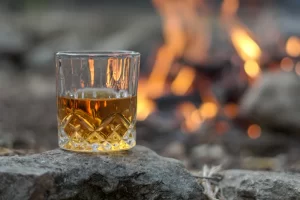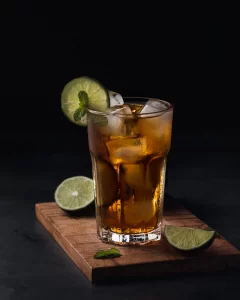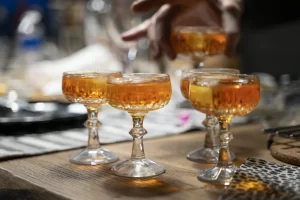Nebraska Liquor Laws And Regulations
Interested in owning and operating a distillery in Nebraska? It’s important to stay up to date with the state’s licensing requirements, as well as liquor laws and regulations.
Nebraska isn’t a control state, meaning the state isn’t closely involved with the sale of alcoholic beverages, but it does have some relatively strict regulations.
If you’re thinking of opening a distillery in Nebraska, you must have both federal and state licensing.
Micro Distillery licenses are renewed yearly, and the application process can be long. There are also several fees associated with receiving a license.
In this guide, we’ve taken a look at the rules and regulations enforced by Nebraska Liquor Control Commission (NLCC), and how they affect your chances of receiving a distillery license.
We’ve also explored the restrictions regarding the sale and purchase of alcohol, as well as the notably strict Nebraska open carry rules.
Nebraska Alcohol Sales Restrictions
Nebraska permits the sale of alcohol between 6 am and 1 am, from Monday through Saturday. Most stores will operate with shorter hours than this.
Alcohol sales on Sunday are regulated by local ordinance, so hours can vary. Many stores are unable to serve or sell alcohol before noon on Sunday.
Nebraska doesn’t limit the sale of alcohol on Election day, but local ordinances are able to prohibit sales.
Owners of licensed businesses and their employers are restricted from drinking alcohol on premises after hours.
Licensed establishments are also restricted from offering unlimited drinks at a set price (no bottomless mimosas with brunch), or offering a drink for free on the sale of another drink (no buy one, get one free deals).
An unusual law that is nevertheless useful to know is that Nebraska restricts the sale of mixed drinks containing beer and spirits, such as boilermakers.
However, it is permitted to mix spirits in drinks. There has been protesting regarding this rule, so keep an eye out for changes.
Restrictions Regarding Buying Alcohol In Nebraska
Nebraska restricts the sale of alcohol to those 21 and above. These laws are strictly enforced. Selling alcohol to a person under the age of 21 can result in a $1000 fine, or potentially jail time.
Customers are restricted from bringing their own alcohol into a licensed premise. Having purchased and opened a drink in a licensed premise, the alcohol container can’t be removed.
If you only drank half a bottle of wine in the restaurant, you are not permitted to remove the bottle.
Any container that has been opened in a private establishment must be transported in the trunk of a vehicle.
This is intended to prevent the driver or passengers from gaining access. Nebraska has strict open container laws, and breaking them can result in fines.
However, if a hotel has an alcohol license, a guest can consume an alcoholic drink purchased outside the establishment in their own private room.
Nebraska Distillery State Fees
The annual license fee for a Micro Distillery in Nebraska is $250. The license must be renewed every year, and renewals come with an additional charge.
The initial license application fee is $400, and you must also pay the $250 licensing fee. Overall, the initial application will cost $650.
When applying for your Micro Distillery license, you must also provide an alcoholic liquor tax bond of $1,000, as well as Power of Attorney documentation.
Nebraska Distillery Licensing Requirements
 Nebraska follows federal law concerning distilling spirits. It is strictly forbidden to produce distilled spirits at home for personal or commercial use. Any distilled spirits must be created in a TTB-qualified facility.
Nebraska follows federal law concerning distilling spirits. It is strictly forbidden to produce distilled spirits at home for personal or commercial use. Any distilled spirits must be created in a TTB-qualified facility.
Failing to comply with these regulations can result in a fine of up to $10,000, jail time, or both.
It is illegal to distill spirits for personal use in the state of Nebraska. To distill spirits for commercial use, you must apply for a Basic Permit from the TTB and a Registration of Distilled Spirits Plant.
Information on the federal distilled spirits permit can be found on the Alcohol and Tobacco Tax and Trade Bureau website.
Having received your license from the TTB, you can now apply for a Nebraska Micro Distillery License. Distilleries can be registered under an Individual, as a Partnership, as a Limited Liability Corporation (LLC), or as a Corporation.
Before applying, you will need to contact the TTB, the NLCC Audit Division, and apply for an Alcoholic Liquor Tax Bond.
To receive your license, you must provide proof of citizenship, a business plan, proof of building ownership/lease application, and fingerprints. You will also need to disclose any arrests or convictions of any partner involved in the business.
All applications must be approved by the local governing body, the fire marshall, the Department of Agriculture, and the State Patrol.
If everyone approves, you will receive your license. This will need to be displayed on the premises and renewed yearly.
Nebraska Distillery Restrictions/Laws
To receive a license to operate a distillery, and to renew the license yearly, you must follow the restrictions set by the Nebraska state Liquor Control Commission.
A Micro Distillery is defined as a distillery producing a maximum of 10,000 gallons. Any larger distilleries are not allowed under this license. The license is valid for 1 year and then requires renewal.
Anything produced by the distillery must be stored on licensed premises. Storing off-premises is prohibited. Any spirits must be paid for within 30 days, and credit cannot be extended beyond this point.
Failure to provide all the correct documentation can delay the licensing process. If any information received is incorrect, or requires further investigation, the application will go to a Nebraska Liquor Control Commission hearing.
This will further delay the process. A criminal conviction will not always prevent you from getting a license, but it can necessitate a hearing.
Any premise granted an alcohol retail license is required to prominently display a sign warning about the dangers of drinking while pregnant. The sign will be provided by the NLCC.
Licensed businesses must also display a prominent sign warning about the penalty for purchasing alcohol for anyone under 21.
Conclusion
To own and operate a distillery in Nebraska, you must comply with both federal and state regulations. These regulations aren’t particularly strict compared to other states, but they do need to be closely followed.
Failure to complete the application forms accurately can severely delay licensing, and even result in no license being issued.
Further, Nebraska has strict laws regarding open containers, in addition to when and where alcoholic beverages can be consumed.
Both business owners and consumers must comply with these rules. Failure to do so can result in fines and even jail time.
Nebraska liquor laws can be confusing, and some of them can be convoluted. They are also subject to change, so you must stay aware of the current licensing rules.









